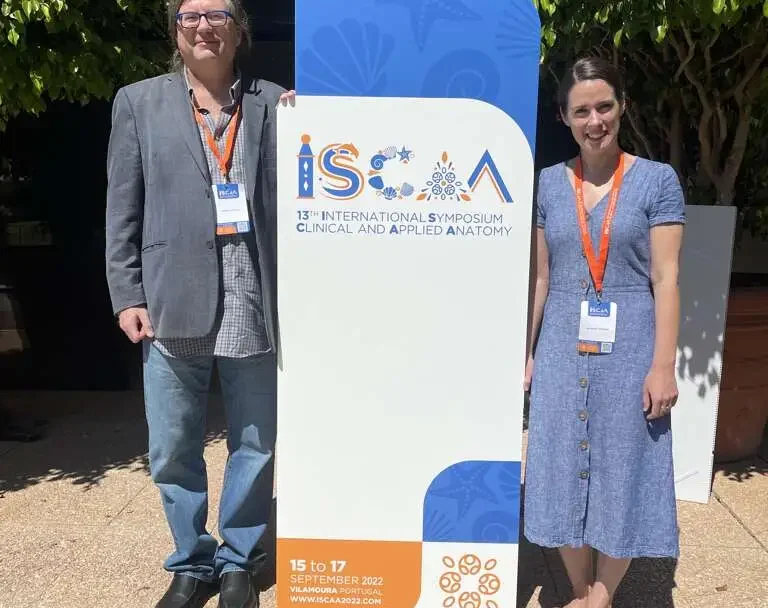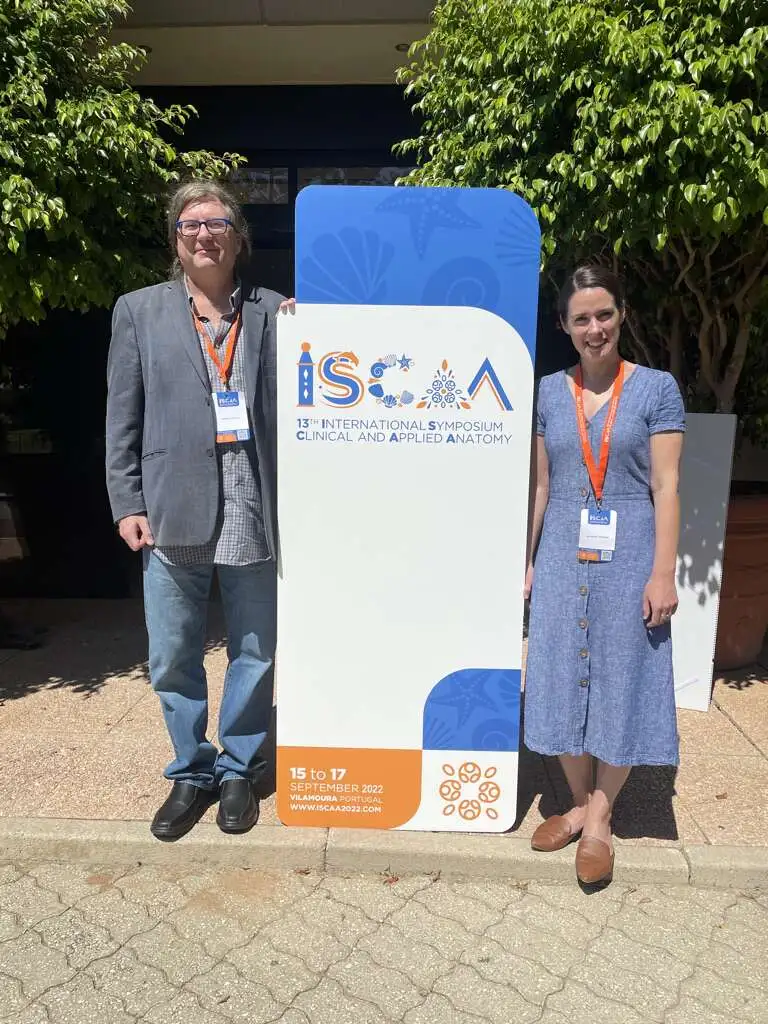Classics Instructors Present at International Symposium for Clinical and Applied Anatomy

On Saturday, September 17th, 2022, two members of the Department of Classics, Dr. Stephen Russell (instructional assistant/sessional), and Amanda Hardman, (PhD candidate/sessional), presented a paper at a roundtable on terminology at the 13th (annual) International Symposium of Clinical and Applied Anatomy (ISCAA) in Vilamoura, Portugal. Stephen currently teaches and Amanda has taught Classics 2MT3-Ancient Roots of Medical Terminology at McMaster University. Stephen also teaches Classics 3MT3-Advanced Ancient Roots of Medical Terminology.
The title of their paper was “Moving between two worlds: preparing students for both anatomical and clinical terminology”, and the focus was how to properly introduce medical terminology, which uses a mixture of Greek forms for clinical terms and Latin forms for anatomical terms, to students who have no background in either.
Their paper was received enthusiastically, since there is a recognition throughout the world that medical terminology instruction needs to be both improved and increased. Many people at the Congress were excited about learning more about how we approach this at the McMaster Classics Department, since we have one of the most innovative medical terminology programmes in the world.
The Department of Classics offers a Concurrent Certificate in the Language of Medicine and Health.

On Saturday, September 17th, 2022, two members of the Department of Classics, Dr. Stephen Russell (instructional assistant/sessional), and Amanda Hardman, (PhD candidate/sessional), presented a paper at a roundtable on terminology at the 13th (annual) International Symposium of Clinical and Applied Anatomy (ISCAA) in Vilamoura, Portugal. Stephen currently teaches and Amanda has taught Classics 2MT3-Ancient Roots of Medical Terminology at McMaster University. Stephen also teaches Classics 3MT3-Advanced Ancient Roots of Medical Terminology.
The title of their paper was “Moving between two worlds: preparing students for both anatomical and clinical terminology”, and the focus was how to properly introduce medical terminology, which uses a mixture of Greek forms for clinical terms and Latin forms for anatomical terms, to students who have no background in either.
Their paper was received enthusiastically, since there is a recognition throughout the world that medical terminology instruction needs to be both improved and increased. Many people at the Congress were excited about learning more about how we approach this at the McMaster Classics Department, since we have one of the most innovative medical terminology programmes in the world.
The Department of Classics offers a Concurrent Certificate in the Language of Medicine and Health.
